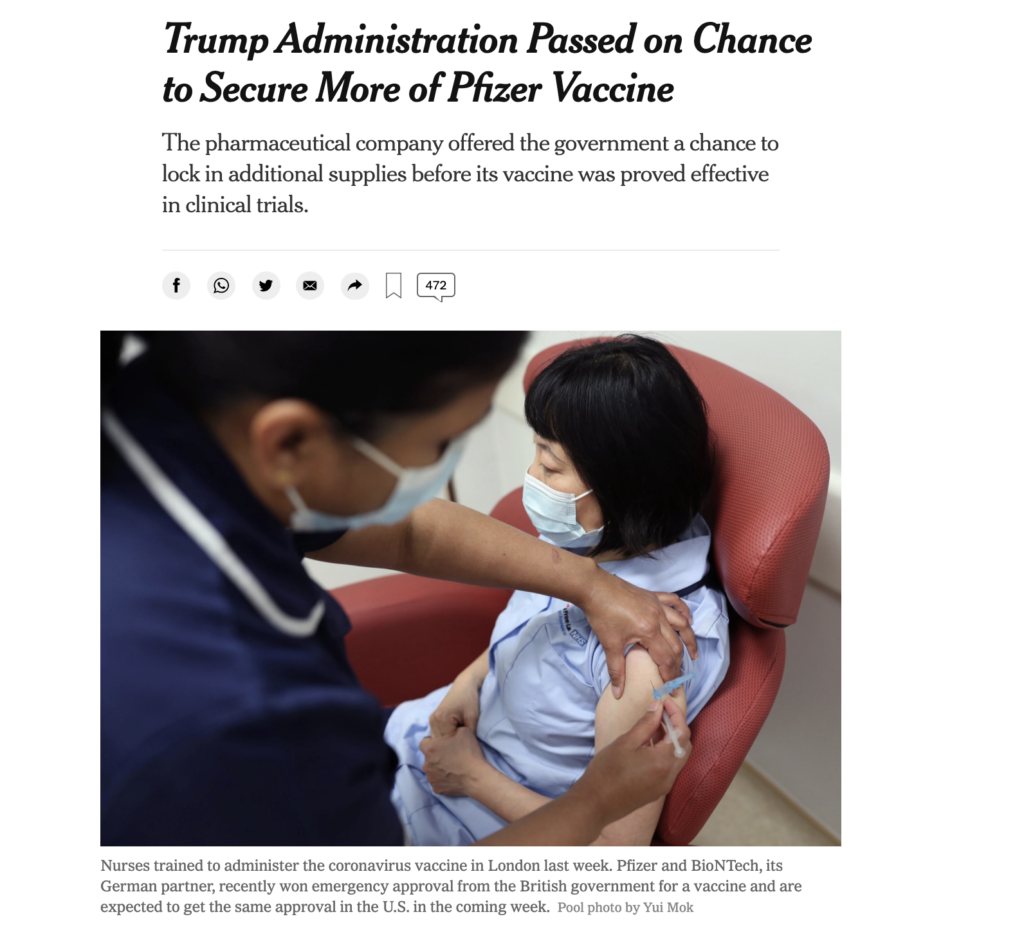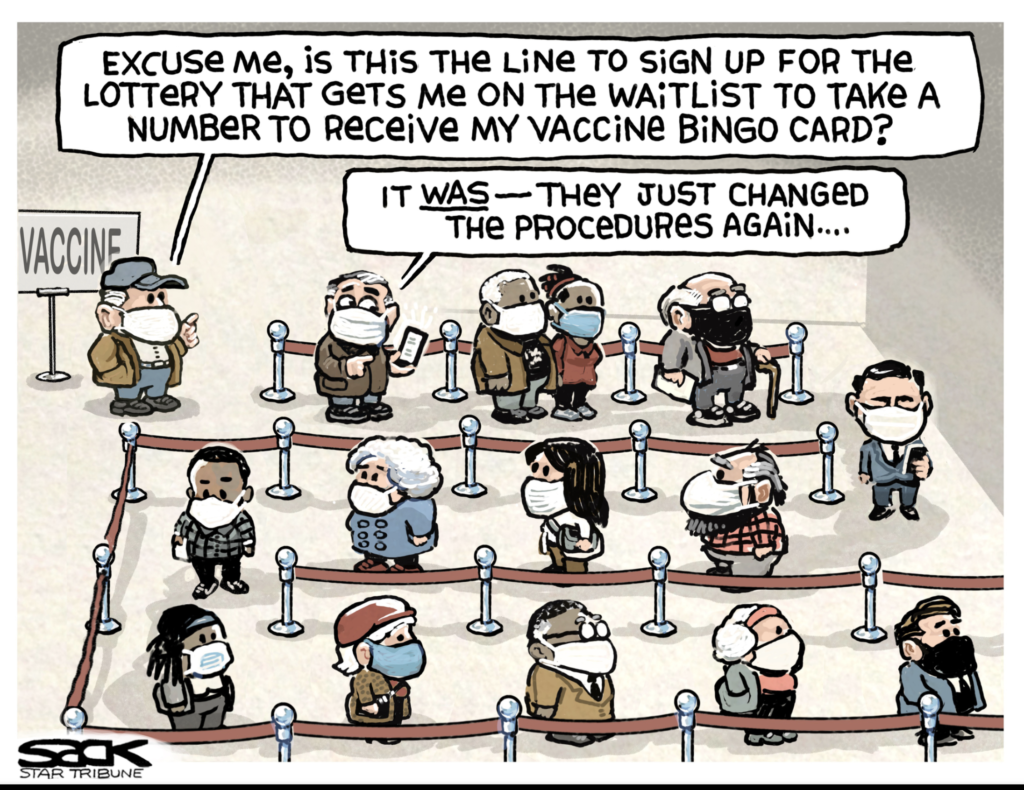It’s painfully obvious that former President Trump badly screwed up the parts of the Covid-19 vaccine initiative that he actually controlled. While he obviously wasn’t equipped to be in the lab developing vaccines quickly, he was in a position to order the right number of doses, develop a plan for getting the vaccine to at least 70 percent of us, and marshal resources to implement the plan.

He botched that assignment, and that has put a very dark cloud over President Biden, who needs a relatively swift end to the pandemic in order to have any hope of having a successful presidency.
But maybe there is a bit of a silver lining in that dark cloud–highly visible consumer demand created by the shortage.

As all good Adam Smith fanboys know, the law of supply and demand tells us that low supply will create high demand for a product. In a nation with a sizable slice of vaccine doubters, creating more demand for the Covid-19 vaccine will be critically important.
It’s no secret that shortages, or perceptions of shortages, are powerful tools for marketers. For instance, the makers of Teddy Ruxpin and Nintendo Wii produced too few products, perhaps intentionally, and that generated tremendous consumer demand. As a result of the shortage, those companies benefited from months of millions of dollars worth of free new media coverage of consumers waiting in line. Sales ultimately surged, as consumers apparently thought to themselves, “I mean, if all of them want it so badly, I must want it too!”
This happens all the time in capitalistic economies. Shortages increases consumer demand. That’s also why so many internet marketers go to great lengths to tell us how few of their products remain available. It’s why the Starbuck’s Unicorn Cappuccino and McDonalds’ McRib sandwich are only available for “a limited time only.”
Based on those examples and many others, all of this news and social media coverage about Americans fretting about vaccine shortages and bragging about getting their vaccine before the rest of us may help convince some number of Americans that they want this product as well.
“I mean, if all of them want it so badly, I must want it too?”
And indeed, newer surveys are showing that more early skeptics are getting interested in getting vaccinated. In September 2020, when Trump was still in charge, and wildly exaggerating everything about his Covid response, the number of Americans saying they would definitely get vaccinated was only about 51%. This posed a huge challenge, because epidemiologists tell us we need about 70% to get the Fauchi Ouchy in order to achieve the necessary herd immunity.
By December, with Biden starting to take the reins and positive test results rolling in, the number had grown to 61%. That’s important progress.
But how do we get from 61% to 70%? The news media and social media obsession with the vaccine shortage, and Americans doing victory dances on their social media feeds after getting vaccinated, may do for Fauci what the Wii shortage did for Nintendo.
To be clear, there will be lethal implications of Trump’s bumbling of the vaccination distribution plan. A delay of a month or two will mean many Americans will needlessly get sick and die. That’s tragic and inexcusable.
But as we continue to mop up Trump-generated calamities, we have to take the good news wherever we can find it. And maybe this current vaccine shortage will help convince enough of the remaining vaccine fence-sitters to join the herd.

I hope you are right, Joe.
this article, from the Wall Street Journal, gives insight into a trend that really worries me–that the politically motivated masking/social distancing skeptics on the right will join the anti-vaxxers/corporate-suspicious on the left into a “health freedom” coalition that makes public health an impossibility:
https://www.wsj.com/articles/vaccine-skeptics-join-forces-with-antimask-crowd-11612284890?page=1
Contrast this with what Australia has manage to accomplish:
https://www.washingtonpost.com/world/asia_pacific/australia-coronavirus-cases-melbourne-lockdown/2020/11/05/96c198b2-1cb7-11eb-ad53-4c1fda49907d_story.html
https://www.nytimes.com/2021/02/01/world/australia/perth-lockdown.html
How did we get to this place where we trust nothing? Yes, Trump has been a complete disaster for trust in any and all institutions, but the general decline in trust in government and all institutions (nonprofits, corporations, you name it) certainly long predates Trump. Trump was a symptom, not a cause. This general loss of trust goes back at least to the 1960’s and the VietNam war (which some of us vaguely remember), and it is coming back now to bite us when we need it most.
You describe the headwinds for pandemic distribution well. I think coverage of the shortage could be a pretty substantial tailwind that will make things better, though far from perfect. We’ll see.